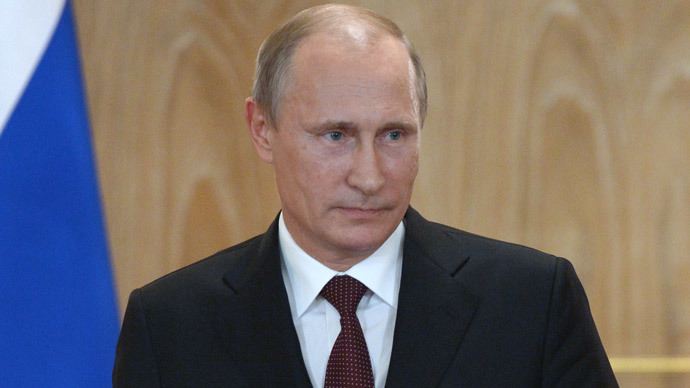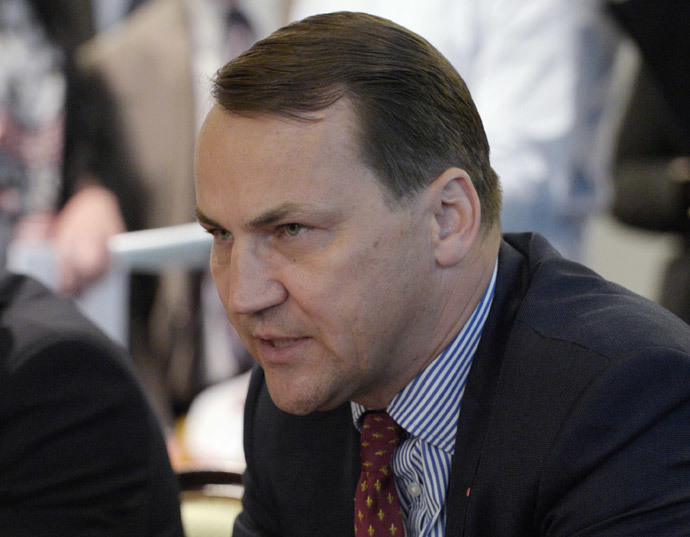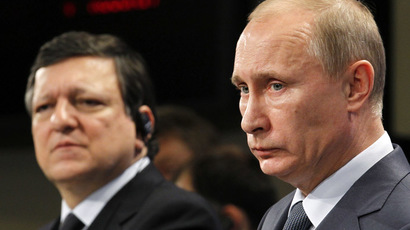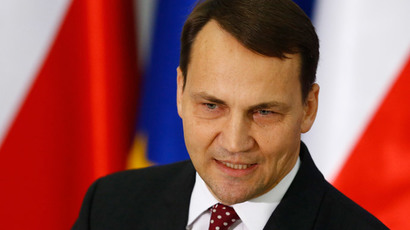Malice behind Putin misquotations? Russia to respond with full disclosure

It’s open season for Western media to bend the rules in their depiction of Russia. And with a little help from Western officials, they can quote President Putin speaking pretty aggressively – even when he actually said nothing of the kind.
In recent months, there have been two notable occasions when Vladimir Putin was misquoted. The first came when he apparently put on his conqueror’s hat while speaking about Ukraine. In September, La Repubblica newspaper reported the Putin had told then-European Commission president, Jose Manual Barroso, that he “could take Kiev in weeks.” The alleged bragging was revealed by the European official to a council meeting, but after Moscow said it would publish the transcript of the entire conversation, the EU admitted that the words were taken out of context.
READ: EU admits Putin’s comment on ‘storming Kiev’ taken out of context
An arguably more scandalous incident was sparked by former Polish Foreign Minister Radoslaw Sikorski, who told Politico magazine that he overheard Putin suggesting to Polish Prime Minister Donald Tusk in 2008 that Ukraine be divided between the two nations. The official backpedalled on the accusations after a backlash both from Russia and at home, admitting that he never heard Putin actually voicing the Hitleresque plan. He also admitted that Putin and Tusk didn’t actually meet at the time the conversation was supposed to have taken place.
READ: Sikorski U-turn: Polish ex-FM backtracks on scandalous 'divide Ukraine' claim

Moscow suspects that both incidents may be part of a slander campaign against Russia.
“I have no doubt that the entire situation with pumping up passions and anti-Russian feelings among the Western public is well-coordinated,” Russian Foreign Minister Sergey Lavrov told the LifeNews channel.
“Was there malice in the actions of some of our Western colleagues, who started interpreting the content of confidential conversations in a way that turned interpretation into misinterpretation? Or have some folks simply decided to ride before the hounds or demonstrate their full loyalty to the campaign unfolding in Europe with a lot of input from their transatlantic allies?” the minister wondered.
READ: Russia ready to recognize Ukraine parliament election - Lavrov
Moscow will respond to similar incidents in the future in the way it tackled the Barroso disclosure.
“I believe we found the best antivenom – we at once state that we are ready to publish a full transcript of the conversation as was the case with Barroso and some others,” Lavrov said.
“We have nothing to hide. Yes, some things are confidential. But on our part we never touch upon things meddling in someone’s internal affairs,” he added. “We are being philosophical on the issue.”

The rebuke from the Russian minister comes days after a key speech by President Putin, who has accused the US of destabilizing the global political system through selfish and hypocritical policies after the fall of the Soviet Union.
Lavrov himself was the subject of a spectacular misquotation back in 2008, when Russia responded to Georgia’s attack on South Ossetia and the killing of Russian peacekeepers stationed in the region.
At the time, the British newspaper, The Telegraph, reported that Lavrov used foul language in a telephone conversation with his British counterpart at the time, David Miliband, rhetorically asking the much-younger official: “Who are you to f****g lecture me?” The verbal abuse was denied by both the Foreign Office and the Russian Foreign Ministry.













